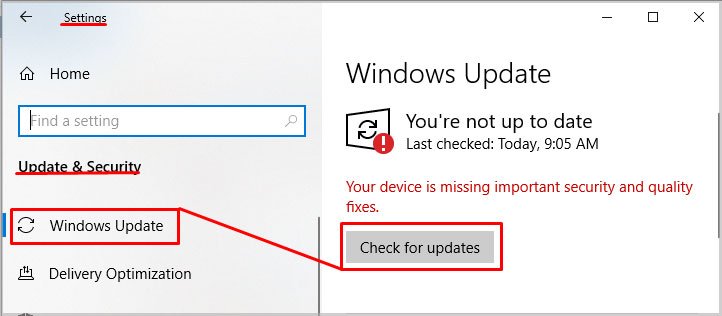Well, there are many reasons for it, like incorrect configurations, outdated sound driver, the volume is on mute, and so on. But thankfully, there are many effective solutions you can try that you find convenient. So, let’s move on to some more causes and how to fix laptop speakers not working.
Why Laptop Speakers Are Not Working?
How to Fix Windows Laptop Speakers Not Working?
Before we begin, it’s best to confirm if the problem is with your laptop speakers. To test this, you can right-click on the speaker icon on your taskbar. You’ll see a small pop-up window with settings. Click on the Playback tab. Now, right-click on Speakers and click on Test. Windows will play sounds on both sides of the speaker.
Incorrect sound settings Outdated sound driver Damaged hardware Minor bugs and corrupted files Speaker is not set as the default device. Audio is on mute on other platforms.
If you can’t hear anything, we can look into the solutions to fix laptop speakers not working:
Troubleshoot Audio Issues
If you’re using Windows, you can directly troubleshoot any issues with the audio with the Troubleshoot feature. This feature helps fix any minor bugs and errors in the audio system. Here’s how you can do it:
Update/Reinstall Sound Driver
Since the audio driver monitors audio inputs and outputs, updating or reinstalling a new driver can be one effective solution. Giving your sound driver a refresh can help resolve bugs and errors if there are software-related issues with the speakers. So, here’s how you can reinstall and update your audio driver:
Set Speaker as Default Device
If your laptop speakers are disabled or not set as the default device, it won’t play any sound. If you aren’t sure how this happened, someone else might’ve changed the setting. However, you can always check and set your speakers as the default device to let it play sounds again. Here’s how you can do it:
Disable Audio Enhancements
Audio enhancement is a feature to improve the quality of the audio on your laptop. However, it can lead to unwanted errors sometimes due to bugs. In such cases, even Microsoft recommends you turn it off to fix errors. Here’s how you can disable audio enhancements:You can now try playing any audio and see if this works.
Check Volume on Other Apps/Websites
It’s always best to check the volume on the platform you’re using to play media. For e.g., when you’re using YouTube, Spotify, or Netflix, you will not hear any sound if the volume on such sites is on mute, you will not hear any sound. If you are playing a game on your PC, it’s a good idea to check the in-game sound settings as well.
Restart Your Audio Services
If most solutions aren’t working, it’s better to give your audio services a refreshment. Performing this step can resolve internal issues with your audio components. Here’s how you can restart your audio services:
Repair Any Hardware Damages
If most software-related solutions aren’t working, it’s time to check if there are hardware damages on your speaker components. Make sure to check if there are dust particles or broken parts around the speakers. If you can notice some physical damages, you can take your laptop to a nearby electronics repair shop.
Experiment With Various Audio Formats
If your laptop isn’t compatible with a certain audio format, you might hear an inconsistent sound or no sound at all. So, you can try experimenting with different audio formats. Here’s how you can do it:
Update Windows
Finally, updating your Windows is one of the many solutions you can try to fix your laptop speakers not working. This step can be helpful as updating your Windows will update all drivers and components of your PC. The process can also resolve internal bugs and errors. So, if you feel like you missed out on trying some effective solutions, this step might help. Simply, go to Update and Security from your settings and install any available Windows update.












